Coronavirus: 'I couldn't talk, my voice was a whisper'
- Published
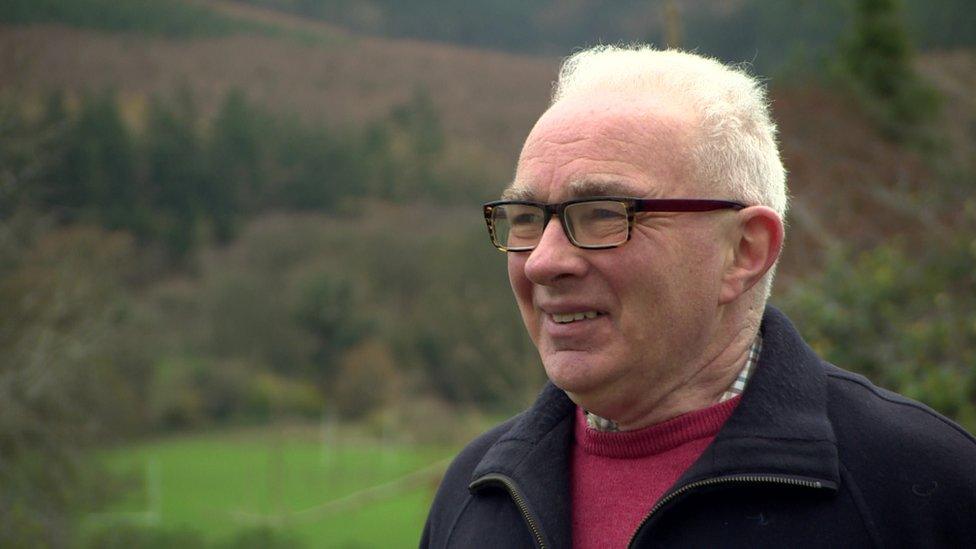
Ronald Doherty spent most of April in hospital after contracting coronavirus
Covid-19 has robbed Ronald Doherty of almost three weeks of memory.
"I can remember walking into A&E at Daisy Hill," the retired accountant said.
"And I can't remember anything after that until I woke up on a ward in Craigavon."
Ronald, now 67, caught the virus in late March, and spent most of April 2020 in hospital.
After his admission via the emergency department in Newry, he was transferred to Craigavon Area Hospital and placed on ventilation in intensive care.
During those three weeks, Ronald was unconscious, but an army of allied health professionals had already sprung into action around him.
"Our intervention starts as soon as the patient is stabilised," Jenny Finney explained.
As a respiratory physiotherapist, her priority is managing oxygen levels.
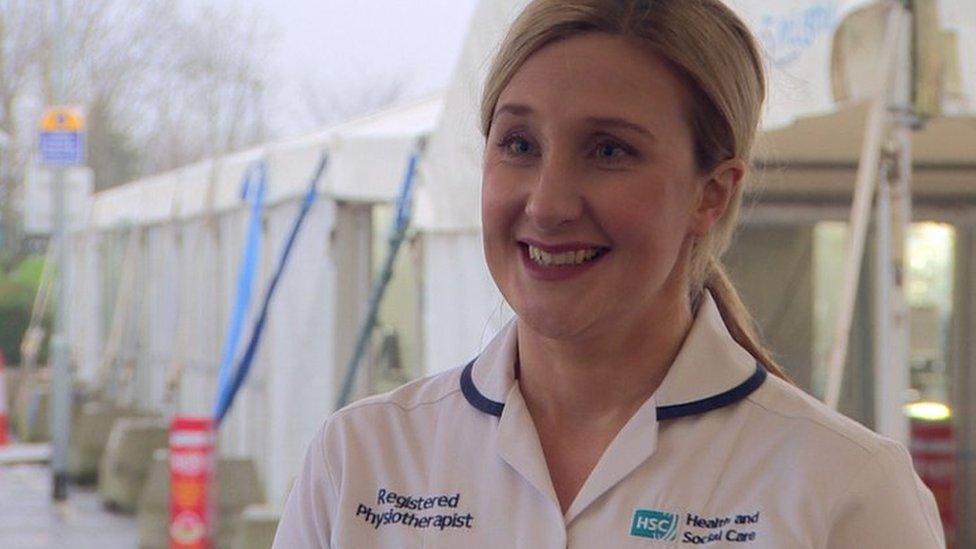
Jenny Finney, a respiratory physiotherapist, is what is known in the business as an allied health professional
"When the patient's in intensive care, they're intubated, ventilated, and sedated to manage all that. So physiotherapy then will help the patient mimic taking deep breaths - that's a preventative strategy to try to help maintain clear airways.
"We'll assess their movement in the bed, and give them some passive movements, that the patient isn't even aware of, and that's all geared to make them able to move in the way they were before they came to us."
Jenny and her team regularly proned Ronald, which is turning him on to his stomach to help his body maximise its oxygen levels.
And when Ronald woke up, he needed more help.
"I was weak, I couldn't get out of bed," he said.
"I couldn't talk, my voice was a whisper."
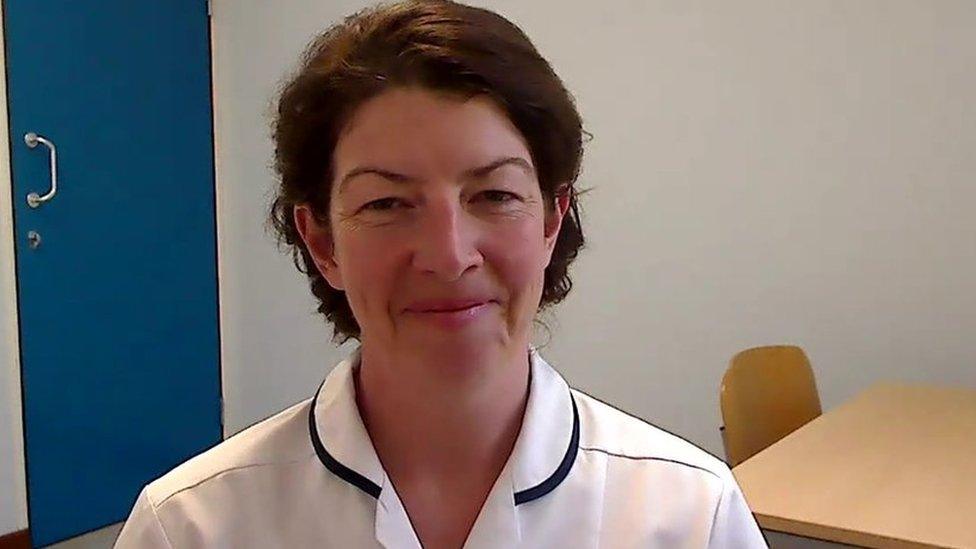
Jacqueline McClelland helped Ronald get his voice back
Speech and language therapist Jacqueline McClelland said because the tubes were in the throat for so long, the vocal cords became unfamiliar with how to open and close.
"So that then interfered with the mechanisms of the swallow," she said.
'It wasn't gourmet'
Jacqueline's work involved giving Ronald back his voice through exercises and enabling him to eat again, with help from dieticians.
That was a slow process of building up to swallowing solid food.
"There are various levels of liquidised food, up to grade seven or something like that," Ronald recalled.
"And I was on two or three, which was everything severely liquidised.
"It wasn't gourmet, so it wasn't, by a long shot."
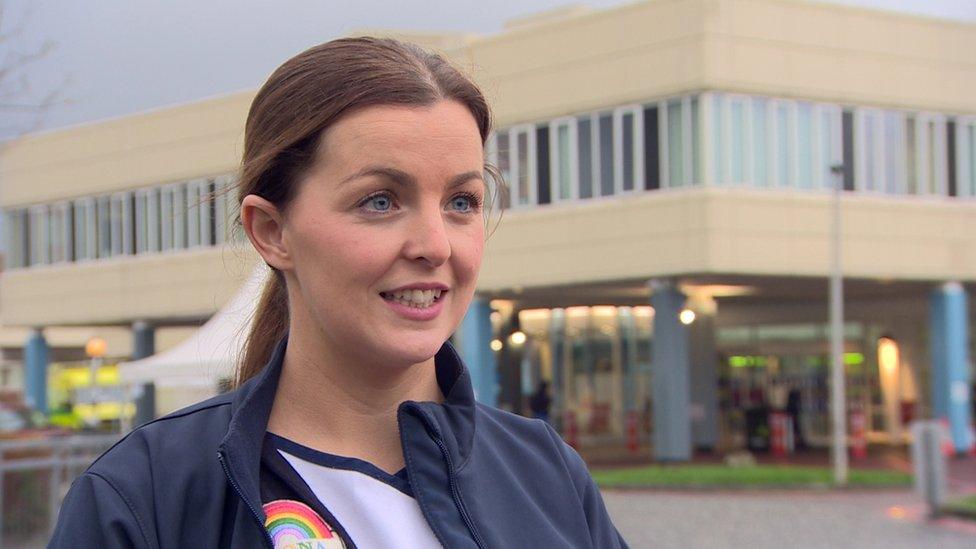
Occupational therapist Fiona Moloney's team continued to work with Ronald at home
Getting home involved a lot of physical effort.
"It started with just walking a few steps," said Ronald. "One of the worst things was with the physiotherapist.
"They asked me how many stairs we had in the house. And they took me to the back stairs in Daisy Hill, with a walking stick and so on, and said, 'see if you can make it up there'.
"That was very, very hard. I should have told them I lived in a bungalow."
Squeeze of lemon
Occupational therapists assessed Ronald at home, to make sure he could get around and take care of himself.
"Once they're discharged, the rehab continues - we're working with the families so their families can get onboard," said Fiona Moloney, part of the Banbridge community occupational therapy team.
"With Covid, some clients are taking months to recover."
Ronald has been lucky.
Seven months on from being discharged, he's back to walking in the hills around Rostrevor.
One day after his return home, he found half a lemon in the fridge.
The son of a baker, naturally he squeezed it and made pancakes, to the delight of his speech and language therapist.
"For me, ultimately, it was physically he could do the cooking, then he was able to eat and drink, which was very important, then he was actually able to tell a story and speak about it," said Jacqueline.
"And to me, it was just a lovely closure - welcome to where I wanted you to be."
Related topics
- Published2 April

- Published26 January 2022
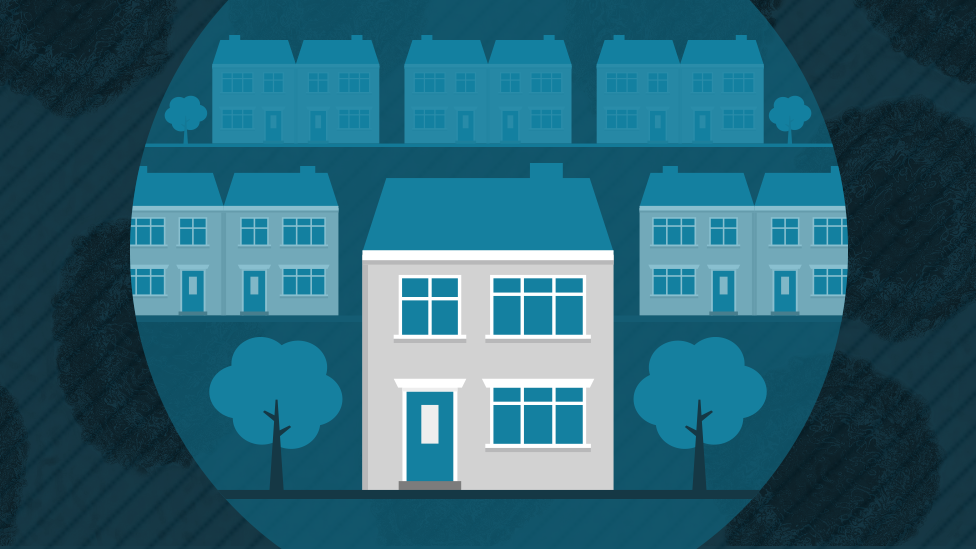
- Published26 November 2020
